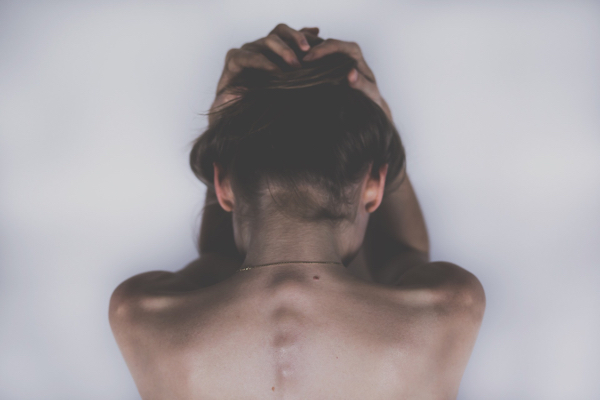South Africa is at the brink of the 1 year anniversary since the first COVID-19 Lockdown in March 2020. Since then, we have mainly focused on COVID’s rise, fall and death rate. We have completely forgotten about the other effects of this pandemic. Depression during this pandemic has risen dramatically across the globe, without us even realizing it.
Not everything is about COVID
So many people have lost loved ones during this pandemic due to COVID-19. Loads have gotten horribly sick. Some are still struggling with symptoms months after recovering. All of us are still scared of contracting the virus for the first, second or third time.
But, we have forgotten that life is still continuing like always. People are still getting sick from all kinds of other diseases, people are still dying from sicknesses other than COVID. People with severe depression and anxiety are still struggling, if not more.
Depression during COVID
Over the last year depression has risen drastically worldwide. Those suffering from depression before COVID are still struggling, but a huge amount of people who never showed any sign of depression have been hit hard.
The main reason for this is that so many people have been confined to their homes, have been forced to work from home and have been prohibited from social gatherings and events. To most ‘normal’ people those are the things that keep them going and help them to stay positive.
Depression Oldies
Most chronically depressed people are usually over thinkers. They can think about the future, present and past all in one go and fine comb each and every decision they’ve made, what they’ve said, what other people have said, and on and on. These types of people are almost used to living like this. Yes, sometimes it gets too bad, but in a way you know what’s happening.
Depression Newbies
Whereas, people who’ve seemed ‘normal’ all their life, who’ve constantly surrounded themselves with friends, family, outings, holidays etc have no idea what depression is until now. These individuals are hit the hardest.
For the last couple of weeks it feels like a day doesn’t go by without hearing of someone that has committed suicide. The majority of people I’ve heard of never showed any sypmtoms before COVID and the symptoms that did appear were set aside as stress or frustration. So many of these suicides have been fathers and husbands that were unable to cope.
Work depression during COVID
It’s ridiculous the amount of companies that have closed their doors in the last 12 months. This has increased the already high unemployment rate. Most companies are hesitant to employ more people as they are unsure of how long they’ll be able to keep their doors open.
Daily & monthly expenses are rising by the day. Most people are struggling to make ends meet.
Emotional depression during COVID
Then there is the emotional part. The majority of people are used to having friends or family over at the weekends. Spending time with loved ones, going out, holidaying or going shopping is an integral part to the emotional well being of most people these days. For the past year during lockdowns, these events and gathering were prohibited. This has been a major spark in the increase of depressed individuals.
What is depression?
Most people think people who are depressed have sad and lonely lives. Being sad and lonely does contribute to depression, but look at Robin Williams for example. To most of us he was the happiest and funniest man alive. Everybody loved him. Yet, he took his own live in August of 2014.
Depression can be visible or it can be hidden, that is what makes it so dangerous. According to the Mayo Clinic; “Depression is a mood disorder that causes a persitent feeling of sadness and loss of interest… It affects how you feel, think and behave and can lead to a variety of emotional and physical problems”.
Symptoms of depression
There is a wide variety of symptoms, but always remember that these symptoms can be hidden if the individual chooses to hide it.
- Mood – Hopelessness, loss of interest, anxiety, apathy, general discontent, sadness & mood swings
- Behaviour – Irritability, agitation, social isolation, excessive crying and restlessness
- Whole body – Fatigue, loss of appetite or excessive hunger
- Sleep – Insomnia, restless sleep, early awakening or excessive sleep
- Cognitive – Suicidal thoughts, lack of concentration, repeatedly going over thoughts or slowness in activity
- Weight – Weight gain or weight loss.
Diagnosing depression
If you, your loved one or a colleague at work is experiencing any of the above symptoms for a prolonged period of time, it is very important that they consult with their GP as soon as possible. These changes will be the opposite of their normal behaviour. Depression, if left unchecked can be life altering.
Depression treatments
After consulting with you healthcare practitioner, they will refer you to a mental health specialist or will prescribe you a course of anti-depressant or anti-anxiety medication.
For those wanting a more non-invasive approach, there are loads of other ways to assist in reducing your anxiety and depression. Herbal drops, herbal tea, exercise and especially ozone therapy can be of great help to those suffering from mild depression. Always consult with a GP before starting a new treatment.
Ozone therapy & depression
Regular ozone therapy sessions in an ozone sauna can drastically improve your overall wellbeing. Below are a few of the over 100 benefits of ozone therapy.
- Combats irritability
- Reduces mood swings
- Improves sleep, which reduces exhaustion and improves memory
- Reduce nervousness
- Strengthens the immune system
- Increases oxygen levels in the blood
- Combats anxiety and depression
Conclusion
It is important for us to continue to prevent the spread of COVID-19 and to follow the protocols that have been put into place by our world leaders, but we have to also remember that some of us might be struggling emotionally a bit more than others.
If you or someone you know is struggling with depression, reach out or get into contact with the appropriate authorities.







Leave a Reply